
The second-year specializations (30 ECTS) are offered by five universities. The fourth and final semester of the SECCLO programme is dedicated to the Master's thesis (30 ECTS).
During the second-year studies, each student will complete 30 ECTS of courses in one of the consortium universities choosing a specialization track:
| Institution | Specialization track |
|---|---|
| The Royal Institute of Technology (KTH), Sweden | Communications Systems |
| The Norwegian University of Science and Technology (NTNU) | Information Security |
| Technical University of Denmark (DTU) | Reliable Distributed Systems |
|
University of Tartu, Estonia |
Cryptography |
| EURECOM (co-deliverance with Institut Mines Télécom), France | Big Data Security |
The KTH specialization takes a holistic view on the Internet infrastructure together with its cloud-based services and applications, and covers the topics required for developing the next generation of global communication systems that connect the cloud services and devices. Students work in a research environment with ample experimental resources and in close contact with industry – including leading system manufacturers, service developers and providers, and advanced early adopters.
The specialization includes one mandatory course and a wide range of elective courses, allowing the student to focus on different subject areas, such as network systems security, network infrastructures, or wireless networking. Many courses are problem oriented with self-directed and project-based work.
Mandatory course (15 ECTS):
Elective courses (15 ECTS):
The NTNU specialization covers research related topics in systems and communication security. The students learn about authentication, key distribution, integrity, confidentiality, anonymity and digital forensics in wireless access networks for mobile users, as well as proposed new network technologies. A course on ethical hacking covers techniques used by computer hackers and penetration testers in order to better defend against intrusions and security violations in live systems, including low-level kernel and hardware topics, techniques for web applications, exploit techniques, rootkits, and some forensic techniques.
The students perform a small research project and learn the phases of research from motivation to evaluation of the results. The project prepares the students for the thesis. Everyone also chooses one elective course from a broad range of topics.
Mandatory courses (15 ECTS):
Elective courses (15 ECTS):
The DTU specialization teaches the students to design and analyze secure and reliable computer systems including embedded, cloud and software-intensive systems and services. Students work on protecting computer systems with vital functions, from controlling critical infrastructure to providing public services over the web, against threats from vandals, criminals, industrial espionage and cyber-terrorism. They learn to design embedded and distributed cloud-based systems, and to provide essential and secure functionality under a range of competing constraints: low computational resources, high availability, reliable communication, and adequate security.
The curriculum also covers proactive methods and techniques for engineering the safe and secure software-intensive services typically found in cloud-based systems. The courses provide the formal underpinnings for developing these kind of systems, together with elective courses that allow the students to explore the wider context.
Mandatory courses (at least two):
Elective courses (remaining credits up until 30 ECTS)
The UT specialization teaches the cryptographic foundations underlying secure protocols. It provides mathematical foundations necessary for an in-depth understanding of why and how cryptographic systems protect the privacy and integrity of our data, and what are the limitations of cryptographic systems. Theoretical underpinnings in cryptography and theoretical computer science are provided that allow the students to understand how security is formalized and proven, and how to design new cryptographic protocols.
The content of this specialization supports both those who wish to develop new cryptographic systems, and those who wish to use existing systems and need to understand how they work and how to use them securely. The mandatory courses provide the student with sound mathematical and cryptographic foundations while the elective courses to cover diverse areas of cryptography and theoretical computer science.
Mandatory courses (15 ECTS):
Elective courses (remaining credits up until 30 ECTS):
The EURECOM specialization aims at providing a solid knowledge of security in cloud computing and networking combined with practical design and management skills. The students learn how to identify threats, vulnerabilities and privacy problems in networks and cloud systems including the Internet of Things. They learn to integrate security solutions to a cloud computing platform and explore methods for holding cloud stakeholders accountable for the privacy and confidentiality of data in cloud systems.
The curriculum has a hands-on approach that combines laboratory work with classroom education, makes use of high-profile industry speakers to introduce the latest technologies, and includes a supervised semester-long team project on a topic of industrial relevance. One focus area is communication and organizational skills together with project planning and implementation competences. A mandatory management course fosters an entrepreneurial mindset, and the elective courses enable students to further explore data science or networking.
Mandatory courses (25 ECTS):
Elective courses (5 ECTS):
